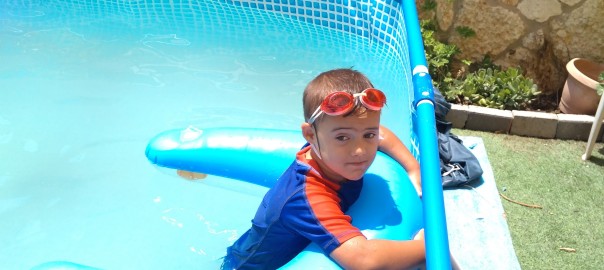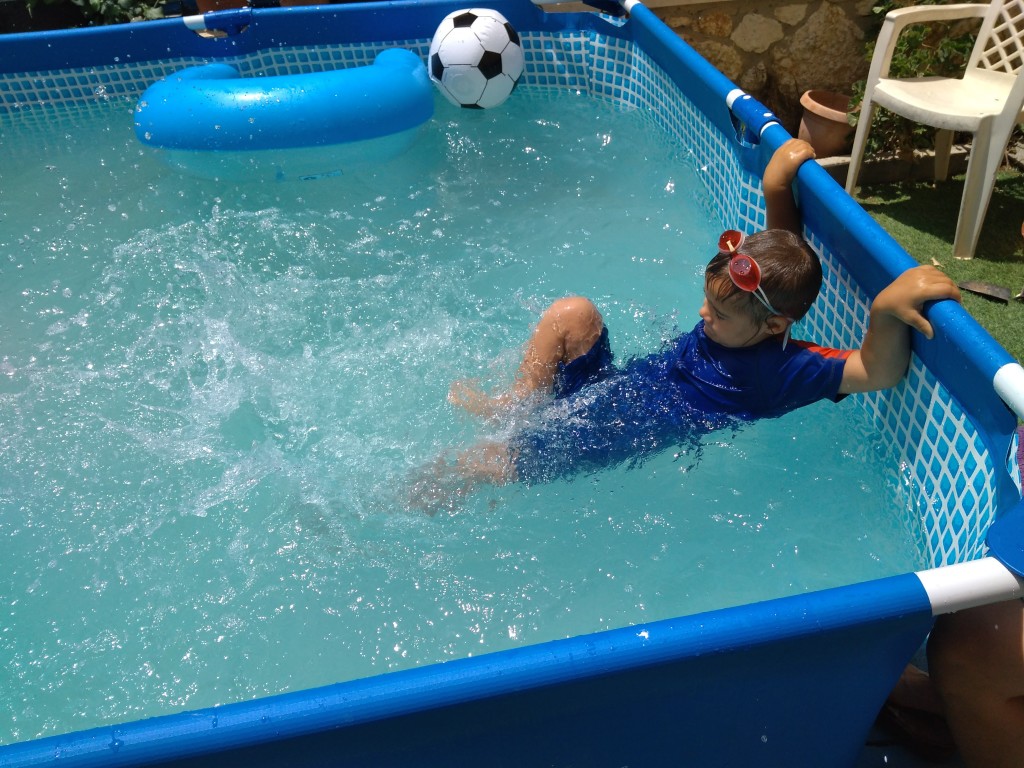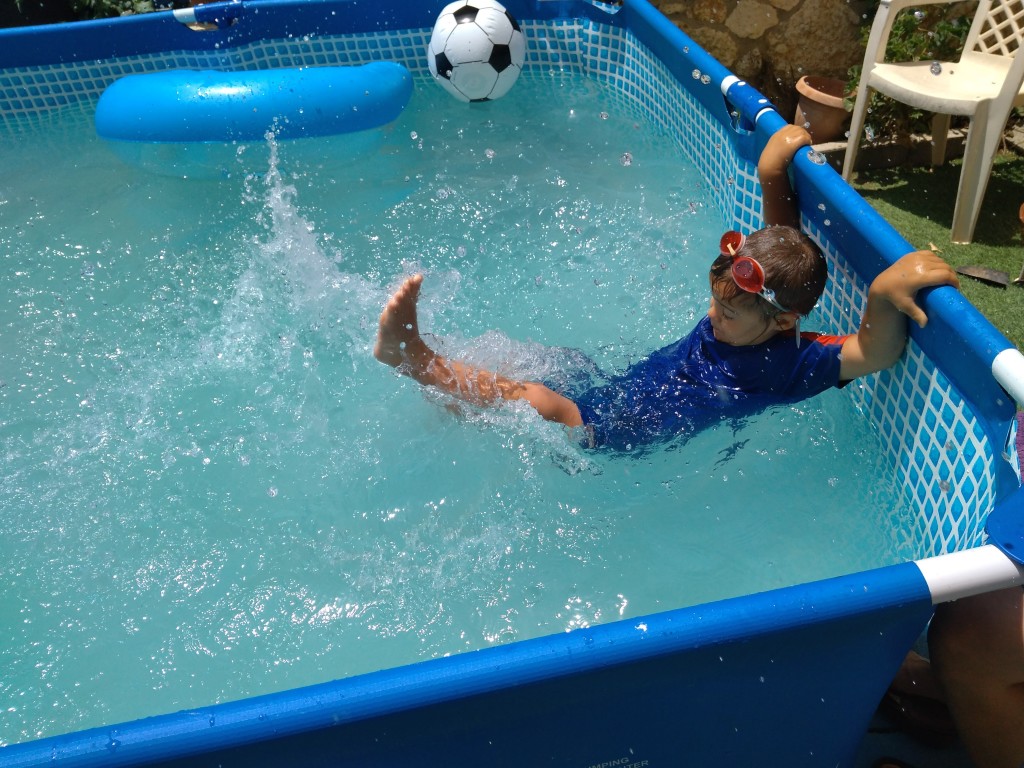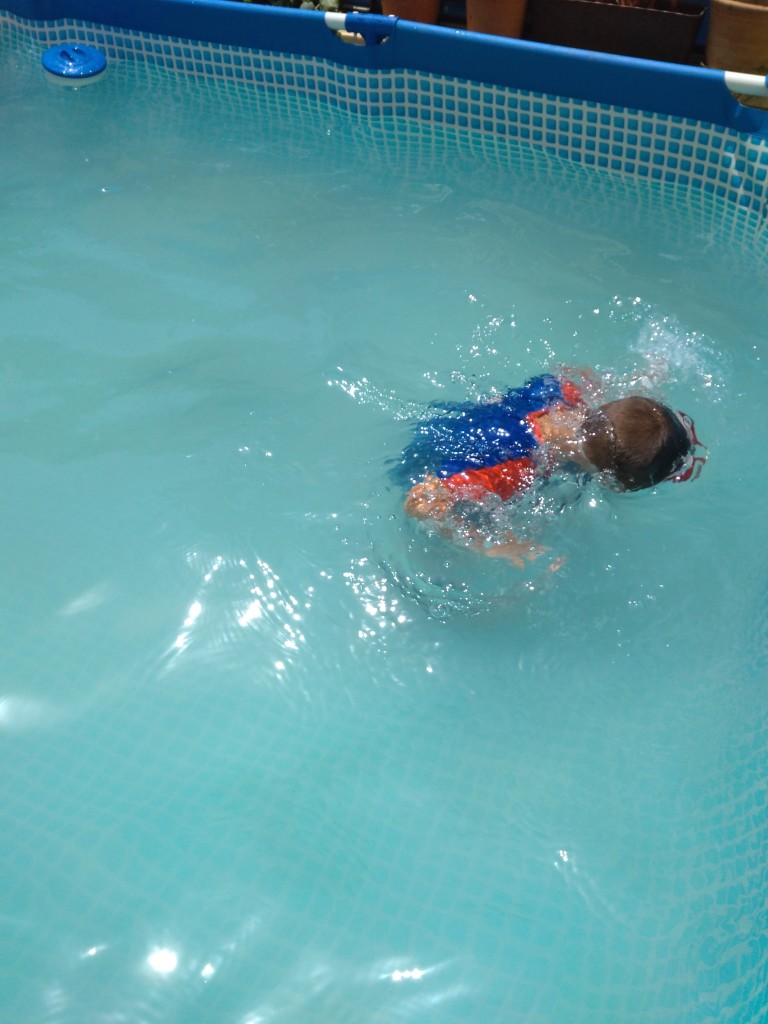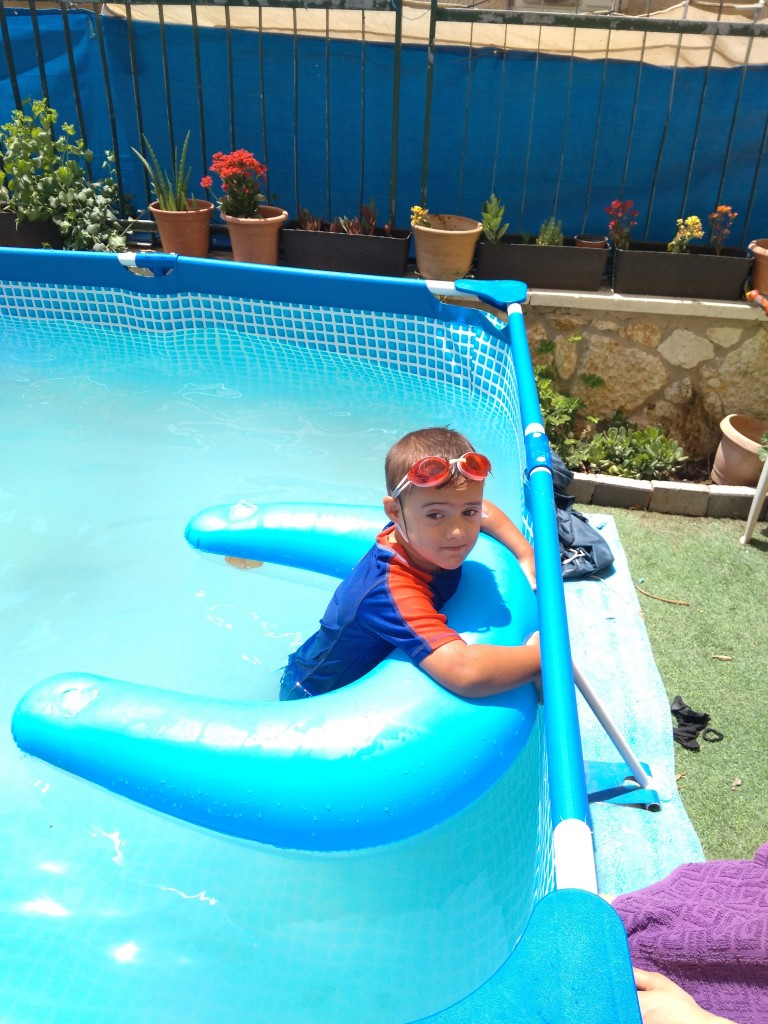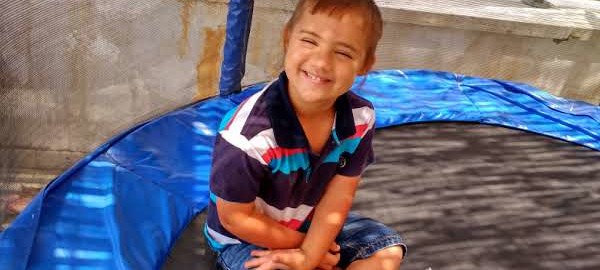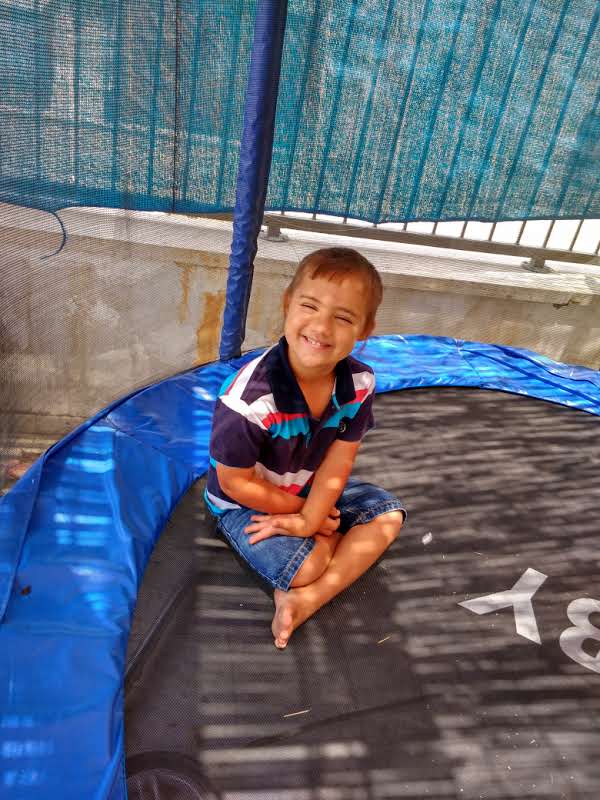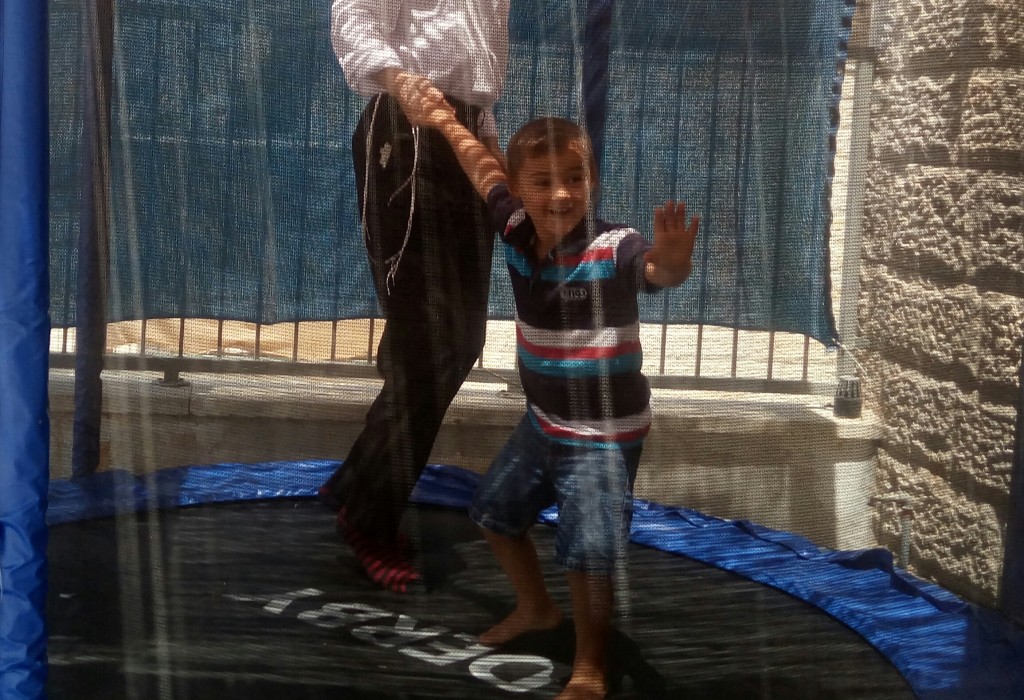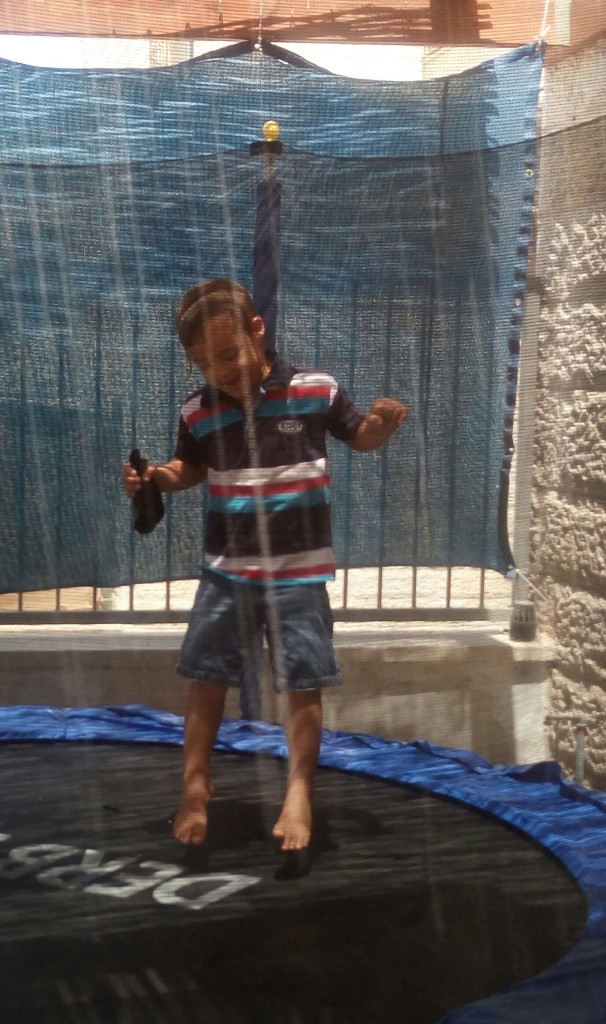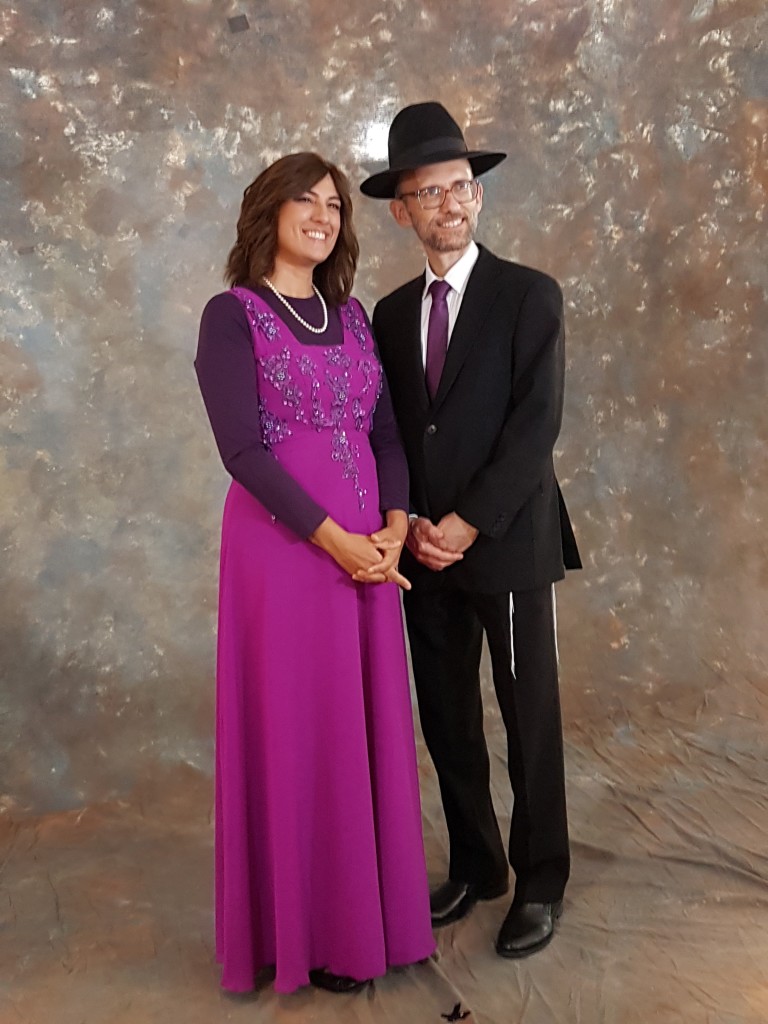>>From your vantage point of five years into this, I’d love to hear what you feel are the best “tools” to help children with apraxia. I know you used Gemiini and flash cards. Beyond the obvious emotional support we offer to our children, I’m looking for practical advice. Thank you!<<
I’m happy to share what has been helpful for us!
First of all, even if your child isn’t speaking much, assume he understands. If he doesn’t understand yet, he’ll understand more as you give him lots of verbal input, filling his day with words and concepts. Building his receptive language reservoir is a precursor to his ability to express himself. Eventually the expressive ability will come.
Keep in mind that communication of any sort is the building block upon which speech is built. Don’t think because it’s not speech that it’s irrelevant to the question of how to deal with apraxia – communication skills are vital.
BUILDING RECEPTIVE LANGUAGE:
– Flashcards – The most obviously visual way to build receptive language is by using flashcards of words and pictures. (At some point I wrote about using the Brillkids program, which is bascially online flashcards and words – it’s a great program and I only stopped using it when I got a new computer and didn’t reload the program onto it.) Yirmi now repeats each word after me when we do flashcards so it’s become an expressive speech support at this point as well.
We also read lots of books.
– Actively engage your child in your world. Talk to him about what you see, give him space to have a turn talking, even when he doesn’t yet talk. Pay attention to his cues and respond to them. When your child sees that his attempts at communication are effective, he will continue to try to communicate. Like everything else, the more he practices communicating, the better he will get.
– Encourage verbal expression through play and constant interactions. I got the book Play to Talk, by Dr. James McDonald when Yirmi was an infant. I loved that Dr. McDonald (whose work spans decades and is an amazing advocate for late talking kids and their families) says that parents are the answer to a late talking child’s challenges, and that the home is the best place to learn and practice communication. It’s a big shift away from the prevalent attitude that paid professionals are the answer. His website is a great resource, as are his books. On his webpage about children with Down syndrome (and this is relevant to any late talker), he writes:
“After all these years, I am confident that parents can help children with Down syndrome give and get a great deal in life if they are willing to do a few simple but often difficult things:
- play in the child’s world habitually
- make children enjoyable play partners before they are obedient students
- don’t worry about school language before children have a good vocabulary for daily natural communication
- be very careful not to expect too little (by doing too much for children) or to expect too much (by setting up impossible jobs)
- pay more attention to positive little steps than to things you may think are mistakes
- act and communicate in ways children can do (matching)
- interact back and forth throughout the day
- be sure children are giving to you as much as you are giving to them”
I learned from Dr. McDonald to go into Yirmi’s world, not just to try to pull him into mine. That includes imitating the sounds he makes rather than only expecting him to imitate the words that I say. Also, I learned to simplify my sentences to match his level of expression to encourage him to respond; it actively pulled him into verbal interactions with us.
– Mediate the world for your child – Mediation is the heart of the methodology taught at the world famous Feuerstein Institute in Jerusalem. It was there that one of their facilitators told me that most people have to be trained to learn this, but that a small percentage of the population are natural mediators – and she informed me I’m one of them! For that reason it’s really hard for me to explain mediation, because it seems like pointing out the obvious to describe it.
Basically, rather than assume he will make the connections on his own, mediation is when you consciously facilitate your child’s exposure to the world around him.
Here’s a nice video that might give a bit more insight into mediation and the Feuerstein approach: Looking Up on Down Feuerstein video
Sign language – I taught Yirmi sign language when he was a young toddler, knowing that language was likely to be a challenge. This has been a hugely important tool for him, since he’s been able to express himself before he had the verbal ability to do so. As his speech has improved and become more clear, he’s dropped the signing. If someone doesn’t understand what he says verbally, he’ll repeat himself by saying the word and signing at the same time. Signing Times videos were a great resource. I also used Signing Savvy to look up words that I wanted to teach him – this is a site with lots of short videos demonstrating hundreds of signs. Signing Savvy was a resource for me to learn the signs, not a video to show my son.
– Gemiini Educational System– I’ve been using Gemiini regularly (I aim for a daily basis) for Yirmi since he was 2.5; we were one of the early families using it for a child with Trisomy 21. At that point it was primarily being marketed for kids with autism. It’s since become a well-known resource in the T21 world.
Gemiini is a web based program that uses a video modeling approach and integrates a number of speech therapy techniques. There are lots of amazing testimonials, including one woman who called me after a blog reader read about us using Gemiini and put her in touch with me. She had a 9 year old daughter with T21 who was completely nonverbal – withing two weeks of starting Gemiini, she began speaking!
Yirmi wasn’t one of the kids who had an amazing jump in speech right away. Actually, it took about a year and a half until we started to get speech – we seemed to be on the very slow track. I’ve already told you my belief that it’s important to keep my eye on the end goal and not get discouraged when the progress in front of me seems slow or doesn’t seem to be happening at all. I never asked about the severity of his apraxia but I can assume it was significant, based on how long it took us to see changes. But we knew changes were happening.
The first thing we noticed is that he began to move his mouth as he watched, trying to imitate the shape of the mouth he was seeing on the screen. As a 2.5 year old, he had never done that. He had only a few vowel sounds that he could make when he started, but eventually he started imitating other sounds.
To sum up a response by Laura Kashbar, creator of Gemiini to the question of how do you know if Gemiini is having an effect: “1) Receptive language improves – is your child understanding more? 2) Gemiini is switching the focus from a daydream state/passive network into active network; when waking up from a daydream there are some things that will happen: a) Eye contact, b) child seems more with it, not in his own world so much, c) will pay attention to sounds when in the past he ignored it, d) get feeling from him that he’s more present. 3) Will see new sounds, new babbling, be more aware of mouth. 4) Fine motor skills increase – great indicators of neurological changes. 5) Gross motor improves dramatically. All of these come together over time to get student going where he needs to go. There’s a global improvement that happens, it doesn’t start with expressive language – it starts with all these other things.”
PHYSICAL DEVELOPMENT:
There’s a very significant connection between speech development and physical stimulation. Everything in the body is connected and the better the body works, the better the mind works. Exercise creates neurogenesis. Of particular importance are activities that integrate cross patterning movement (the hand and feet working in alternate motions).
– Walking/running – This is the ideal cross patterning activity. A saying coined by the Institutes for the Achievement of Human Potential is “Two miles of walking equals talking.” (For a young child, the focus would be on crawling and creeping, which works on lower motor levels of the brain. Don’t rush this stage in order to get to walking – crawling is super important developmentally.)
I’ve been trying to encourage walking for Yirmi when we need to go somewhere, even though I can get where I need to go much, much more quickly if I stick him in a stroller or carry him. This summer he’s been attending day camp (his first time ever!!) and we’ve been starting our day by walking to the bus stop and then from the bus stop to the camp. There are a lot of distractions on the way and this short walk from the bus to camp takes a long time. I try to leave extra time in my schedule whenever I take Yirmi anywhere because I want to encourage him to walk and at the same time, I don’t want to be impatient or feel pressured to get somewhere by a certain time.
He isn’t yet consistently walking very far but stamina is built little by little. Like everything else, we’ll continue to support him and with time his ability will increase.
– Trampoline- In a Facebook group for parents of children with T21, a parent shared that her speech therapist recommended jumping on a trampoline to benefit her son’s speech. That suggestion resonated with me as it matches my approach to therapy and development – to do it in a way that is fun and a natural part of your daily life. He loves the trampoline, and so does every else in the family! (There are lots of great health benefits to using a trampoline as well, like stimulating the lymph system,building immunity and increasing muscle strength – more benefits here.)
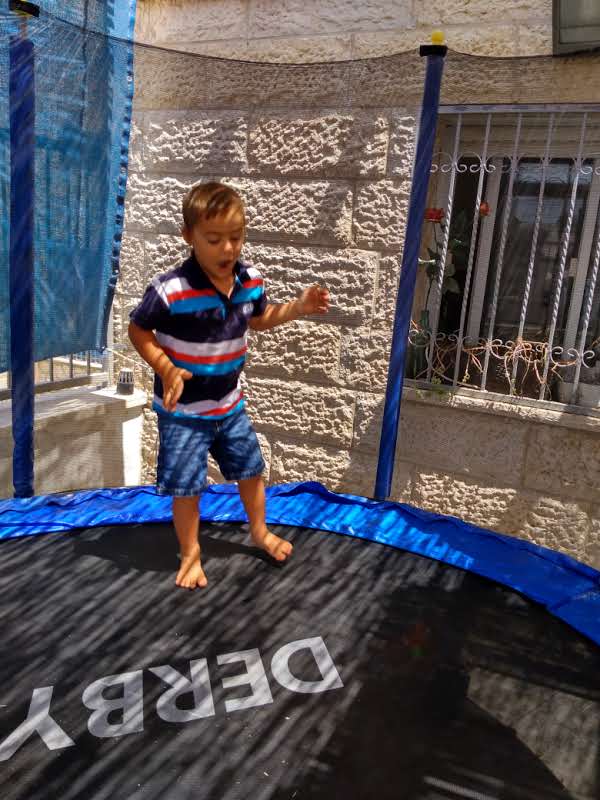
Yirmi quickly learned to do tricks on the trampoline. This physical acuity has extended to when he’s on the ground – he started regularly jumping with both feet within a week of using the trampoline, and shows off his somersaults whenever we have guests!
– Swimming – we put Yirmi in swimming lessons a couple of months ago. He was really scared to do more than sit on the second stair at the public pool and I realized it would take many months to build even basic comfort in the pool at that short weekly lesson. So soon after that I bought an above ground pool to give him a chance to practice daily and build his comfort in the water. He and our other boys now spend hours every day in the pool and his comfort in the water dramatically increased in a very short time.
He imitates what he sees his brothers doing, and has learned to keep his face in the water. He can also stay underwater for up to six seconds, simultaneously using the arm motions like those used when doing the breaststroke.
To continue to support Yirmi’s physical development, I’m planning to build (or more accurately, for my kids to build :)) a pergola in our yard where we can hang swings. I’m hoping we can integrate monkey bars into the frame, since brachiation is a wonderful therapeutic activity (and of course, fun!).
I’ve been wanting to do this since the end of last summer but ds18 has been at school and not available for a long enough period of time to spearhead this project. He graduated high school three weeks ago and the next day began his job as head counselor for a local camp – now that he’s finished that job, he said he’ll make time to start this project in the next week or two.
Nutrition- we don’t give Yirmi gluten or dairy, both of which are difficult to digest and clog the digestive system. The digestive system/gut fuction is intrinsically linked to brain function. A mind that is clogged up doesn’t work as well. He continues to eat a fairly clean diet – minimal processed foods, mostly proteins, vegetables, fruits, and whole grains/legumes.
Reflex integration – I am very interested in doing reflex integration work with Yirmi, and after a lot of research on the topic chose a specific cold laser protocol. However, when I attempted to purchase the QRI cold laser this past winter, due to a technical problem with order processing we had to drop the idea for the time being. If at some point someone will be able to bring it for us from the US, we’ll try purchasing it again! Parents have had great results from the laser but obviously I don’t have a personal testimonial on that.
How is Yirmi’s speech at this point, as a newly turned five year old? He began saying words when he was four. He’s now speaking sentences of up to seven words (though it’s still hard for non-family members to understand him), mostly words of one to two syllables. His speech has accelerated very quickly and seemingly out of the blue, but it hasn’t been out of nowhere – we’ve been supporting his speech in these various ways for years.
Avivah
